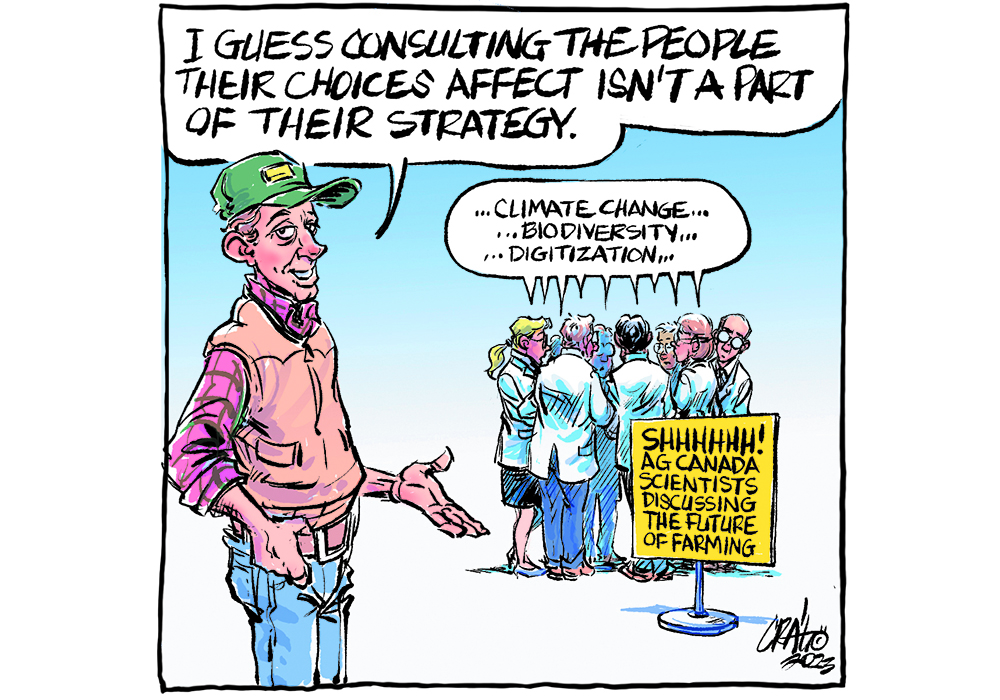Agriculture Canada quietly, in the dead of night (or in this case at harvest time), reset its strategic plan regarding scientific priorities.
The previous science objectives were to increase farm productivity, improve environmental performance and attributes for food and non-food uses of products from farming and address threats to agriculture and the agriculture and food value chain.
Those made practical sense.
The new objectives, changed last fall, are to mitigate and adapt to climate change, increase the resiliency of agricultural ecosystems, advance the circular economy through more value-added agriculture and accelerate the use of digital tools in agricultural and food production.
Read Also

Budget seen as fairly solid, but worrying cracks appear
The reaction from the agriculture industry to prime minister Mark Carney’s first budget handed down November 4th has been largely positive.
Those are more subjective.
Agriculture Canada’s work and policies are vital to the nation and its farmers, so more consultation on changes, with those in the sector, would have been welcome.
Whether this is a change in horses or merely a change to saddles is yet to be determined.
But scientific priorities for the nation’s agricultural research are significant because the effects are felt long into the future. We are told the shift was orchestrated at the professional level of the civil service, outside of the minister’s office.
At first reading, the new priorities involve serious changes that might not include farm economics as priorities. It will depend on how they are implemented.
For instance, the science behind the former objective, “increasing agricultural productivity,” could potentially be achieved while one is “increasing the resiliency of agro-ecosystems,” as the new policy puts it. The two may be exactly the same science but with a new and more publicly palatable heading. Or not.
Is this a case of “grand” renaming? The new strategic plan for science appears to be based on “grand challenges,” a phrase that has been floating around the global-greening and planetary-health lexicons for a while and is purported to address multiple factors related to planetary sustainability.
Agriculture Canada describes this big thinking direction for its scientists to be “public good agricultural research” — as though farming and food production, and its research, weren’t always in the public good.
Agriculture Canada’s departmental leads didn’t charter this new course on their own. They consulted with their scientists and other staff. And, possibly for efficiency’s sake, they took input from the roundtables and other farmer and public consultations used to create the Sustainable Canadian Agricultural Partnership framework.
According to one deputy minister, agricultural scientists will now be expected to work with researchers from other departments and industry to put their work into the context of greater societal goals and collaborate as groups of interested parties rather than as agriculturally focused clusters.
In the “grand” scheme of things, senior staff in science-based departments and centres of excellence have always been required to put focused research and its potential results into a broader context for public and ministerial consumption.
But wide collaborations with many individuals tend to slow progress and are subject to funding analysis by less agriculturally experienced leaders.
Agricultural science often delivers results for the planet over many years, even decades. A grand plan is fine, so long as there are tangible and timely deliverables.
The new objectives would have more credibility if the farm and food sector was more “grandly” involved in their development.
Karen Briere, Bruce Dyck, Barb Glen and Mike Raine collaborate in the writing of Western Producer editorials.















